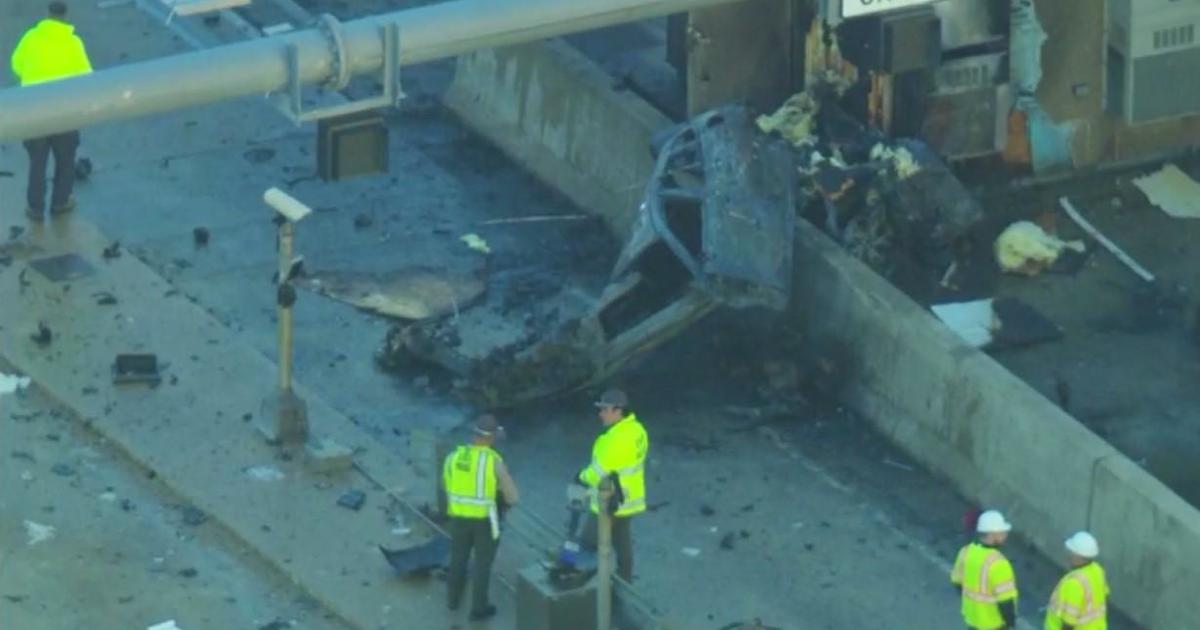FAA Techs Defend Backup System For Crippled Radar Facility
Todd Feurer, CBS Chicago Web Producer contributing
CHICAGO (CBS) -- FAA employees who have helped keep air traffic moving safely over the Midwest since last Friday's act of sabotage at a radar facility in Aurora are answering critics who have said there isn't a proper backup system in place.
WBBM Newsradio's Mike Krauser reports FAA technical employees are responsible for operating and maintaining the equipment air traffic controllers need to do their jobs to guide jets along their routes.
Luke Drake, vice president of Region 1 the Professional Aviation Safety Specialists, which represents those technical employees, said he's heard the criticism of how long it is taking to get things back to normal after the Chicago Air Route Traffic Control Center was knocked out of commission by an arson fire last Friday.
"How could we not have a system robust enough to deal with it? The fact of the matter is we do have a system. Instantaneous? No. But immediately backed up, and then right now we're looking at less than two weeks from the event to having most of the facility back online, and everything back to normal," he said.
Podcast
Drake said the sabotage that crippled the Chicago ARTCC – one of 22 such centers across the nation – is something that was anticipated in the 1950s.
"At the time, there was a lot of concern, of course, about nuclear attack. If one of them was taken out, how do you maintain the national airspace system?" he said.
The FAA essentially divides the skies over the U.S. into sections, and each of the 22 centers is responsible for one of those sections.
When the Chicago ARTCC went down, techs shifted communications handled there to other centers in Cleveland, Indianapolis, Kansas City, and Minneapolis.
Drake acknowledged such a transfer is not instantaneous, but in his view it worked like it should after the Aurora facility was knocked out of commission, and he called the response a tremendous success.
Durbin, fellow U.S. Sen Mark Kirk, other members of the Illinois congressional delegation, and Mayor Rahm Emanuel all have criticized the FAA for not having a better backup system in place to quickly get O'Hare International Airport and Midway International Airport running at full capacity after last Friday's incident at the ARTCC in Aurora.
"There was no backup, no alternative, no restoration of service. That seems so obvious. We've got to make sure, in the future, we have administrators that look ahead to solving the problem, not just recognizing it," Durbin said.
Emanuel said the FAA must figure out how to prevent something like this from happening again.
"How could you have an airport that is so integral to the national and the international system with no backup capacity that one individual can have this impact?" he said. "Task A: get it up and running. Task B: take a deep breath, and get immediately studying what is it you need to do so you can't have one individual – for whatever reasons; upset employee or employer – take down a system and we have no capacity as a city, or more importantly city and country, to deal with this."
Brian Howard, 36, a disgruntled contract employee for the FAA, has been charged with setting several fires in a telecommunications room, severely damaging transmission lines, and crippling the Chicago ARTCC. Flights at both O'Hare International Airport and Midway International Airport were grounded for several hours, except for a handful of flights. Even after the FAA lifted a ground stop at the two airports, neither has returned to normal operations.
Nearly 4,000 flights were canceled in the first four days after the fire. By midweek, O'Hare was operating at more than 90 percent of its normal capacity, and Midway was operating at better than 85 percent its normal capacity.
Thunderstorms that were moving across Illinois on Thursday put a dent in that performance – with O'Hare's performance dipping to about 60 percent – but on Friday, the Chicago Department of Aviation said Midway had only a few canceled flights as of 10:30 a.m., while O'Hare had more than 230.
The FAA has said crews are working around the clock to get the Chicago ARTCC running again, and officials expect to have it fully operational by Oct. 13.
More than 140 air traffic controllers from Chicago have been transferred to other ARTCCs, Terminal Radar Approach Control facilities, and airport towers to help pick up the slack.


